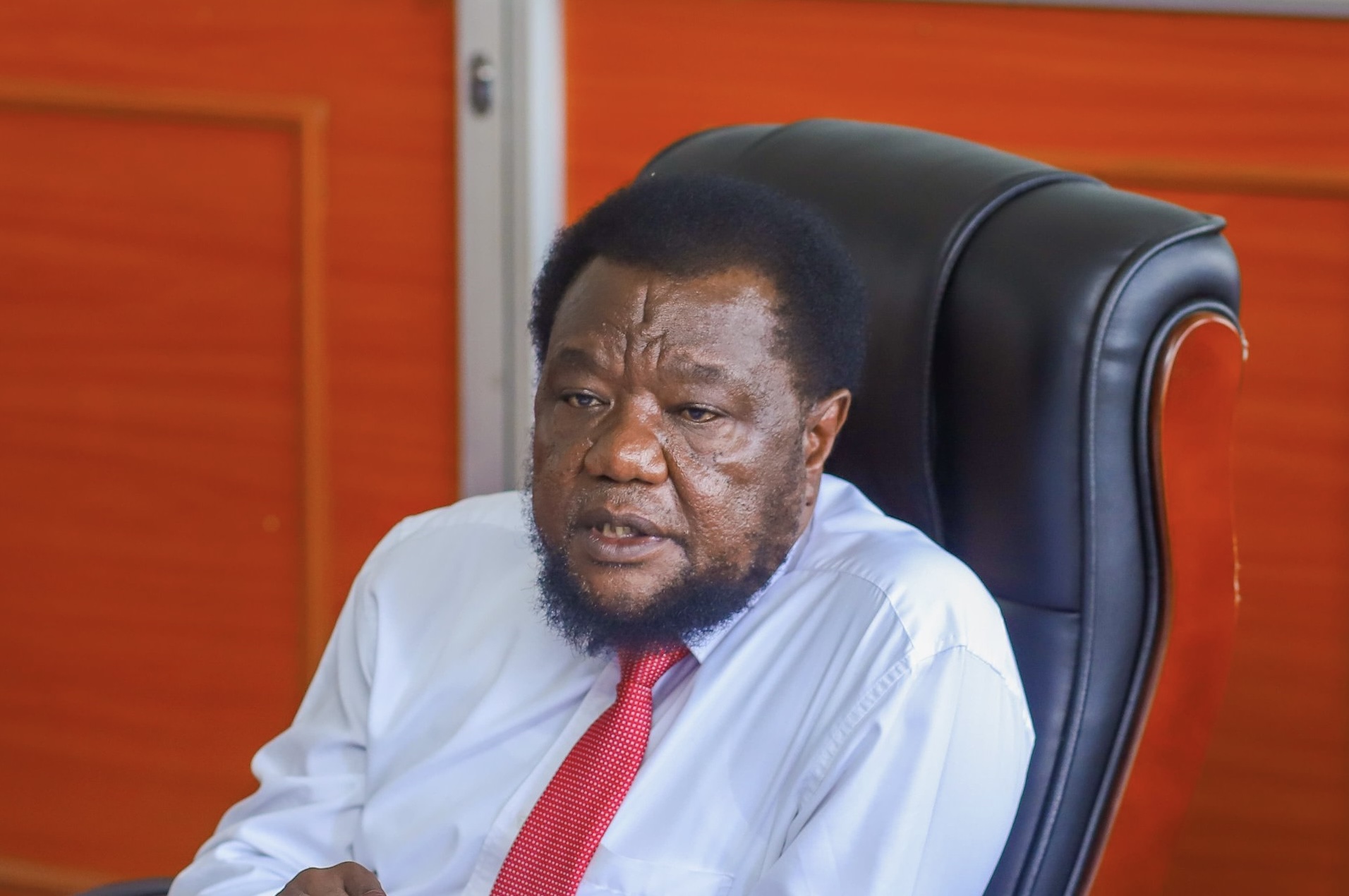Investigations
LREB Locked in Chaos As CEO Nyagaya and Partner Accused of Embezzling Millions
What was meant to be western Kenya’s economic engine has become a cautionary tale of unchecked power, absent oversight, and the oldest story in Kenya’s corruption playbook—those entrusted with public resources treating them as private wealth.

The Lake Region Economic Bloc (LREB) is drowning in a cesspool of corruption, financial mismanagement, and brazen theft that has left the 14-county coalition on life support, barely seven years after its ambitious launch.
At the heart of this scandal are two lovers—CEO Victor Nyagaya and his executive secretary Sylvia Kiaye—who a whistleblower claims have turned the regional body into their personal ATM, siphoning millions while suppliers go unpaid and staff cower at their desks fearing auctioneers.
The most damning allegation?
Nyagaya allegedly moved Sh40 million of LREB funds into his personal bank account in March this year, a transaction that, if proven, represents not just a breach of the Public Finance Management Act but a complete contempt for public accountability.
The money had been sitting pretty in fixed deposit accounts at Equity Bank, quietly generating Sh7 million annually in interest—funds meant to drive regional development, not line personal pockets.
Instead, these deposits have been raided without transparent procedures, the whistleblower alleges, with the lovebirds orchestrating what amounts to state-sanctioned robbery.
LREB was born in 2018 with grand ambitions. Member counties committed Sh2.8 billion to establish a regional development bank that would revolutionize access to credit for small businesses across western Kenya.
The blueprint was comprehensive—agriculture, trade, health, technology, environmental sustainability—all wrapped in a vision of cooperative prosperity.
But vision has collided brutally with reality. While some counties like Kakamega and Vihiga ratified the enabling legislation, others including Bomet, Bungoma, Homa Bay, Kericho, Nandi, Siaya, and Trans Nzoia held out, sensing perhaps what was to come.
The dysfunction runs deep.
LREB operates without a functioning procurement system, a shocking admission that exposes every financial transaction to manipulation.
Suppliers, tired of broken promises, are threatening legal action and asset seizures. Staff members reportedly avoid coming to work altogether, terrified that auctioneers will descend and confiscate their personal property to settle LREB’s mounting debts.
Even the bloc’s website funded by the Ford Foundation and Transparency International, sits offline because LREB hasn’t paid the contractor responsible for its upkeep. The irony of Transparency International funding a website for an organization now accused of spectacular opacity is not lost.
The office itself tells the story: despite millions supposedly under management, basic supplies are lacking.
It’s a physical manifestation of the alleged disconnect between resources and reality, between what LREB claims to be and what it actually is.
The bloc has blamed its troubles on the absence of a national regulatory framework for economic blocs, pointing to consultations with the Ministry of Devolution dating back to 2020.
But legislative ambiguities don’t explain Sh40 million landing in a CEO’s personal account. They don’t explain unpaid suppliers or a workforce in hiding.
What was meant to be western Kenya’s economic engine has become a cautionary tale of unchecked power, absent oversight, and the oldest story in Kenya’s corruption playbook—those entrusted with public resources treating them as private wealth.
The allegations against Nyagaya and Kiaye, if substantiated, represent more than financial crimes.
They represent the wholesale betrayal of 14 counties and millions of residents who dared to believe that regional cooperation could lift their fortunes.
As investigations intensify, one question looms: How did two individuals allegedly manage to hollow out an entire regional bloc while governors and county assemblies apparently looked the other way? The answer to that question matters as much as the money itself.
Kenya Insights allows guest blogging, if you want to be published on Kenya’s most authoritative and accurate blog, have an expose, news TIPS, story angles, human interest stories, drop us an email on [email protected] or via Telegram
-

 Grapevine1 week ago
Grapevine1 week agoAlleged Male Lover Claims His Life Is in Danger, Leaks Screenshots and Private Videos Linking SportPesa CEO Ronald Karauri
-

 Lifestyle2 weeks ago
Lifestyle2 weeks agoThe General’s Fall: From Barracks To Bankruptcy As Illness Ravages Karangi’s Memory And Empire
-

 Grapevine6 days ago
Grapevine6 days agoRussian Man’s Secret Sex Recordings Ignite Fury as Questions Mount Over Consent and Easy Pick-Ups in Nairobi
-

 Investigations3 days ago
Investigations3 days agoMulti-Million Dollar Fraud: Three Kenyans Face US Extradition in Massive Cybercrime Conspiracy
-

 Investigations2 weeks ago
Investigations2 weeks agoEpstein’s Girlfriend Ghislaine Maxwell Frequently Visited Kenya As Files Reveal Local Secret Links With The Underage Sex Trafficking Ring
-

 News2 weeks ago
News2 weeks agoState Agency Exposes Five Top Names Linked To Poor Building Approvals In Nairobi, Recommends Dismissal After City Hall Probe
-

 Economy2 days ago
Economy2 days agoIran Demands Arrest, Prosecution Of Kenya’s Cup of Joe Director Director Over Sh2.6 Billion Tea Fraud
-

 Business1 week ago
Business1 week agoM-Gas Pursues Carbon Credit Billions as Koko Networks Wreckage Exposes Market’s Dark Underbelly
















